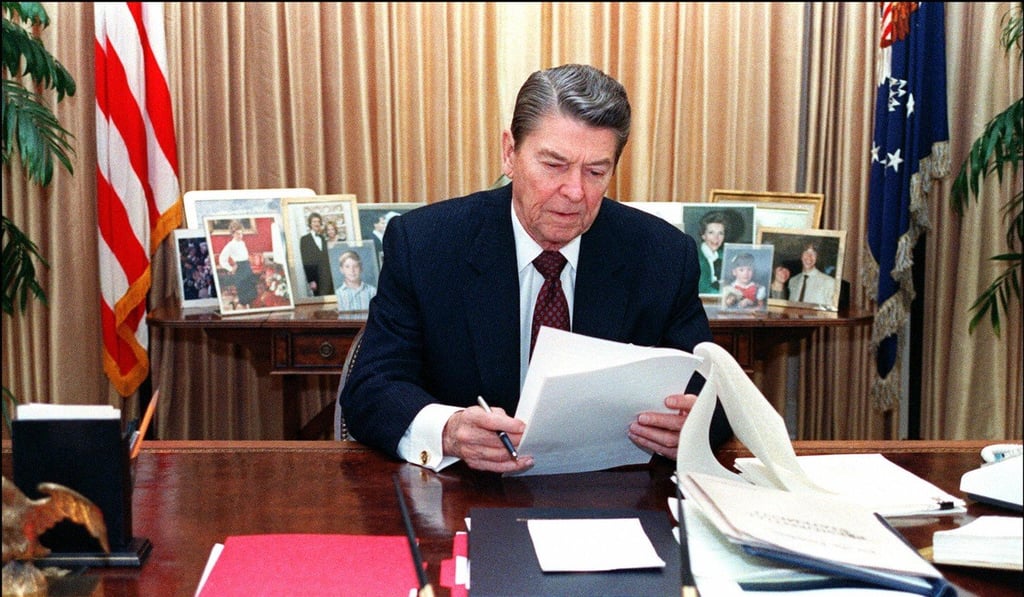Advertisement
Letters | Donald Trump’s policies, like Ronald Reagan’s, speak for themselves – they are racist
- While recordings of former US president Ronald Reagan’s comments on Africans have caused an uproar, they would not surprise those familiar with his record
- The impact of Reagan’s policies, and those of Trump, on people of colour are clear
Reading Time:2 minutes
Why you can trust SCMP

It was reported this month (“‘Those monkeys’: racist remarks surface in taped 1971 conversation between Ronald Reagan and Richard Nixon”, August 1) that when he was governor of California in 1971, Ronald Reagan phoned the White House to express his political virulence to then president Richard M. Nixon. “To see those, those monkeys from those African countries – damn them, they’re still uncomfortable wearing shoes!” Reagan said, to laughter from Nixon. In a subsequent call to a White House official, Nixon, in recounting his conversation with Reagan, described African delegates to the United Nations as “cannibals”.
Did we really need this audio recording to know that Reagan held racially motivated views about politics, the economy and culture? So many of his policies and official statements appeared to be motivated by racial ideology and thinly veiled alignments with the goals of white supremacy. There was his woefully inadequate – at times openly hostile – response to the Aids epidemic. When he finally decided to address the crisis, he scapegoated blacks and homosexuals. Reagan’s immense and catastrophic “war on drugs” had a disproportionate impact on the lives of minorities living in America and all over the world. In this country, people of colour faced higher numbers of arrests and longer prison sentences.
Reagan also spent lavishly on starting and engaging in proxy wars throughout Latin America, including brutal civil wars in countries such as El Salvador and Nicaragua. His battle may have been with the Soviet Union but he mainly invested his military powers in killing black and brown people who wanted to choose their own form of governance.
Nearly every day the message from the Reagan White House was that race is no excuse or explanation for poverty. Slogans such as “just say no” were coupled with theories of trickle-down economics and a push to swing the courts dramatically to the right.
Advertisement

It did not matter if Reagan viewed himself as a racist, or if his followers believed that he was a racist. What mattered was the effect those policies had on people of colour. The consequences were severe and long-lasting.
Advertisement
The recent reports on Reagan reminded me of US President Donald Trump’s referring to Haiti and other countries as “s***hole countries”.
Advertisement
Select Voice
Choose your listening speed
Get through articles 2x faster
1.25x
250 WPM
Slow
Average
Fast
1.25x